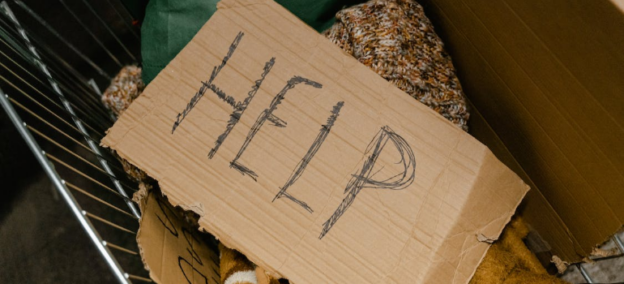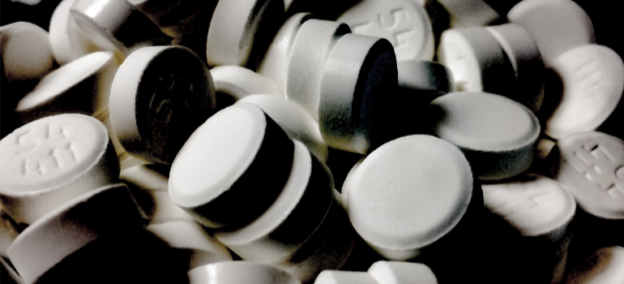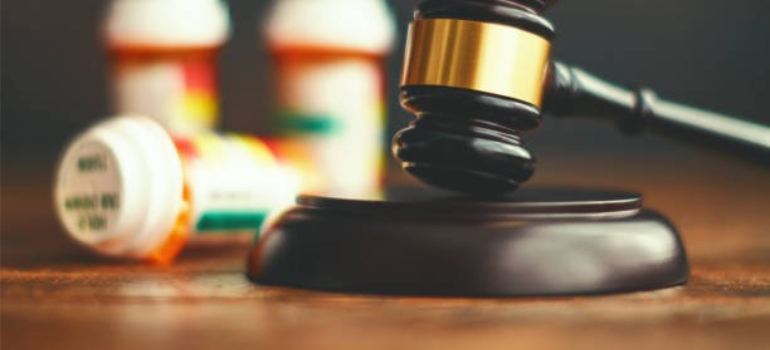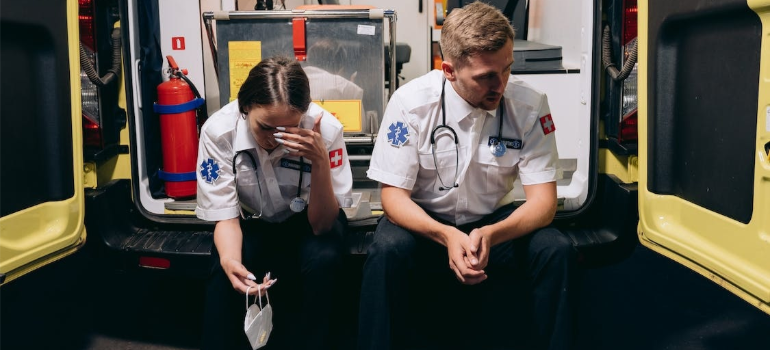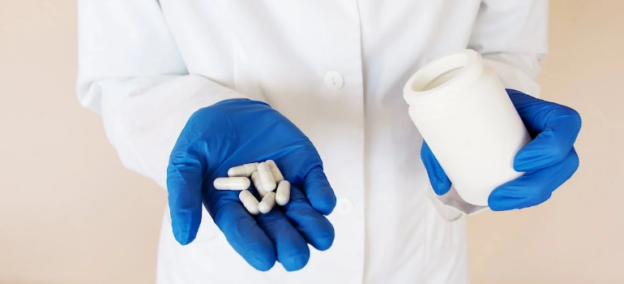Some substances, like alcohol and nicotine, are legal for people over a certain age, but many people still struggle with addiction to these substances. Other substances, like synthetic drugs or inhalants, can be extremely dangerous because of their unpredictable, harmful effects on those using them. Today we are going to discuss the health consequences of addiction, and what you can do to regain your health and life.

Addiction in the Community
Today, more than 7 million people suffer from an illicit drug disorder, and one in four deaths results from illicit drug use. In fact, more deaths, illnesses, and disabilities are associated with drug abuse than any other preventable health condition. People suffering from drug and alcohol addiction also have a higher risk of unintentional injuries as health consequences of addiction, accidents, and domestic violence incidents.
What are the Health Consequences of Addiction on the Body?
Drugs interact with chemicals in your brain and body to make you feel a certain way. Illegal drugs typically have no medical benefits and damage your health. Some prescription drugs help regulate moods, sleep, and manage pain, but they can also have serious complications when misused. Taking higher-than-recommended doses or taking prescription drugs when you don’t need them for medical purposes can cause mind-altering effects. Not only can they make you high, drugs can also cause you to act erratically. Abusing drugs increases your risk for getting hurt or making bad decisions that can have lasting consequences.
Drug addiction can impact every area of your life, leading to:
- Health consequences
- Social and relationship issues
- Problems with work productivity and finances
- Criminal and legal complications
- Poor medical and mental health
What is Drug Abuse?
Clinically known as substance use disorder, drug abuse or addiction is caused by the habitual taking of addictive substances. Drugs include alcohol, marijuana, hallucinogens, and opioids. Substance use disorder is a disease, that causes people to compulsively use drugs despite the health consequences of addiction.
Different Drugs, Different Effects
Drugs affect your body’s central nervous system. They affect how you think, feel and behave. The three main types are depressants, hallucinogens, and stimulants:
- Depressants slow or ‘depress’ the function of the central nervous system. They slow the messages going to and from your brain. In small quantities depressants can cause a person to feel relaxed and less inhibited. In large amounts they may cause vomiting, unconsciousness and death. Depressants affect your concentration and coordination, and slow your ability to respond to situations. It is important to not operate heavy machinery while taking depressants. Alcohol, cannabis, GHB, opiates (heroin, morphine, codeine) and benzodiazepines (minor tranquillizers) are examples of depressants.
- Hallucinogens distort your sense of reality. You may see or hear things that are not really there, or see things in a distorted way. Other effects can include emotional and psychological euphoria, jaw clenching, panic, paranoia, gastric upset and nausea. Ketamine, LSD, PCP, ‘magic mushrooms’ and cannabis are examples of hallucinogens.
- Stimulants speed or ‘stimulate’ the central nervous system. They speed up messaging to and from the brain, making you feel more alert and confident. This can cause increased heart rate, blood pressure and body temperature, reduced appetite, agitation and sleeplessness. In large amounts stimulants may cause anxiety, panic, seizures, stomach cramps and paranoia. Caffeine, nicotine, amphetamines (speed and Ice), cocaine and ecstasy (MDMA) are examples of stimulants.
Health Consequences of Addiction
Brain Health Issues
The brain plays a major role in the development of a SUD. Substance use directly interferes with the brain’s normal functions, specifically those associated with the reward system. In order to adapt to the stimulation caused by drugs or alcohol, the brain reduces the number of dopamine receptors at the synapse. This means that dopamine is cleared more quickly than usual. Modifications to dopamine can cause a person to be less responsive to a substance and decrease responses to natural rewards. A tolerance is formed, which can quickly turn into an addiction.
These adaptations also affect other parts of the brain, such as the regions responsible for decision-making, judgment, learning, and memory. Stopping substance use unfortunately does not return the brain to its normal functions. Because of the health consequences of addiction, this may take years to achieve. The long-lasting effects on the brain’s ability to process rewards can make it difficult to avoid relapse, which can lead to other health issues.
Heart Health Issues
Most drugs can cause health issues with adverse cardiovascular effects. Smoking tobacco substantially increases a person’s risk of getting a heart disease such as stroke, heart attack, or vascular disease. Other substances that can affect heart health are Cocaine, Heroin, Inhalants, Ketamine, LSD, Marijuana, Steroids, and MDMA. Drugs that are injected can cause veins to collapse and blood vessels and heart valves to become infected. Cocaine has also been linked to 1 in 4 heart attacks for the age group 18-45.
Liver Damage
The liver is involved with nutrient metabolization but is also a primary site of detoxification for many types of consumed substances. In the face of constantly high levels of certain drugs, the liver can become overwhelmed in its metabolic duties, and the tissues of the organ begin to break down. Alcohol, inhalants, heroin, and steroids can all rapidly damage the liver, causing cirrhosis or hepatitis.
Sleep-Related Health Consequences of Addiction
Insomnia is a common sleep disorder in which falling and/or staying asleep is difficult. This health issue lowers the overall quality of sleep. When this disorder is ongoing, it is considered chronic. Typically, chronic insomnia is the result of a secondary problem like medical conditions, medications, or a SUD. Symptoms of insomnia are lying awake for a long time before sleeping, sleeping for only short periods of time, being awake for most of the night, waking up and feeling as if one hasn’t slept at all, and waking up too early. Sleep issues can cause daytime sleepiness, lack of energy, and problems with focusing.
Drug Effects on Behavior
Substance use disorders can lead to multiple behavioral problems, both in the short- and long-term, which can include:
- Paranoia
- Aggressiveness
- Hallucinations
- Addiction
- Impaired Judgement
- Impulsiveness
- Loss of Self-Control
These effects of drug abuse have serious health consequences of addiction, like missed work, punishable offenses, accidents and injuries. In fact, alcohol and drugs are partly to blame in an estimated 80 percent of offenses leading to jail time in the U.S. These incidents include domestic violence, driving while intoxicated and offenses related to damaged property. Legal and illegal drugs excluding alcohol are involved in about 16 percent of motor vehicle crashes. In the past year, almost 12 million people drove under the influence of illicit drugs, and almost 4,000 fatally injured drivers tested positive for drug involvement.
Long-Term Health Consequences of Addiction
Drug addiction can cause many long-term negative consequences, including physical health problems like liver damage and heart disease as well as mental illnesses like depression and anxiety disorders. Drug abuse also causes long-term changes to the brain that make quitting so difficult and that take years to change back to normal. Indirect long-term effects of drug addiction include broken relationships, legal problems, financial problems, injuries, and poor overall health.
The Lasting Psychological Effects of Drug Abuse
Drug abuse and addiction often occur alongside mental illness. This can be explained by the fact that the risk factors for both are similar, but there is also evidence that drug abuse can trigger, contribute to, or worsen mental health conditions. According to statistics, people who abuse drugs are twice as likely to struggle with mood disorders, like depression, or anxiety disorders. Drug abuse may trigger any mental illness or make any condition worse, but the most common and lasting mental health issues from drug abuse are anxiety and depression.
What Are The Levels Of Care For Treating Addiction?
Here at Harmony Ridge, our goal is to inform potential patients about all the levels of care we will offer when it comes to their treatment. Before they enroll in our facility, we believe it is best for patients considering our facility to learn about the different types of treatments and therapies we offer. This will give them a better understanding of what to expect when they stay at our center.
If you or someone you know has developed a substance addiction and you want to learn more about levels of care, contact us today. Our staff at Harmony Ridge would be more than willing to answer any questions you may have. We are available 24/7 to provide assistance to anyone that needs it. Feel free to contact us at any time and start the process of recovering from your addiction disorder today!



